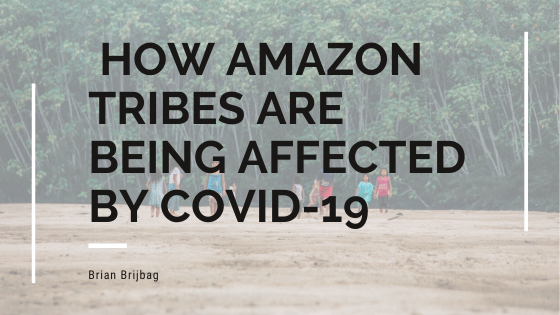Governments and indigenous federations raised fears that COVID-19 has infiltrated the Amazonian region. A teenage Yanomami boy became the first indigenous person to die from COVID-19. The Yanomami tribe has 35,000 Amazonian members, and they live close to the border between Brazil and Venezuela. The Yanomami boy died from this virus on April 9, close to six months since the first worldwide reports of COVID-19 cases occurred. Due to this indigenous boy’s death, there are rising fears of the unchecked spread of COVID-19 throughout the Amazon.
These fears stem from previous cases of colonizing influences affecting indigenous populations. Around 90% of the Americas’ indigenous people died from the effects of European colonization, particularly from the diseases that the Europeans carried with them from Europe.
Since 2005, numerous groups have communicated with indigenous Amazonian populations and federations, assisting them with colonization-related problems. These issues include the introduction of invasive species, deforestation and the spread of infectious diseases never encountered before. Despite years of practice, the Amazonian people’s varied lives greatly affect communication efforts. Some communities will take many days of traveling by canoe to reach, even after departing from the nearest road. Other communities depend on constant sources of cash flow to sustain themselves due to urbanization. Some Amazonians own land, whereas others live off of the land they explore.
Many Amazonians survive through traditional medicines and sustenance from the Amazon forests, and yet others prefer to use modern technology such as video games, WiFi and smartphones. This means that COVID-19 will impact these indigenous people in various ways and to varying degrees. One certain thing is that the Amazonian people are very vulnerable to COVID-19 and to similar infectious diseases. They often have trouble finding access to essential services such as healthcare due to national problems such as institutionalized racism.
The majority of Amazonians are unreachable because they retreated deep into their territory without internet access. Those who expressed their views, such as the Kichwa community, stated that their primary worry was the region’s lockdown status. While they acknowledged the danger that COVID-19 poses, they are more concerned with their inability to earn money and adequately sustain themselves amid the present lockdown. The Amazonian people are suffering as much as more advanced civilizations without significant economic support and social welfare program assistance. Some indigenous communities are fighting against COVID-19 by retreating into the forest and closing access roads.

